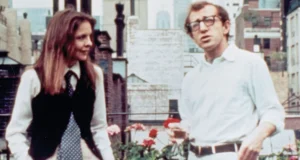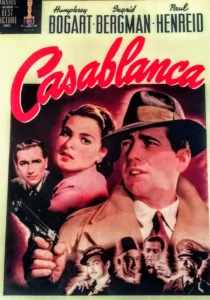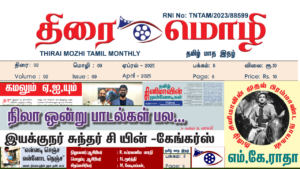
Annie Hall (1977)
“A nervous romance”
Directed by: Woody Allen
Starring: Woody Allen, Diane Keaton
Genre: Romantic Comedy, Drama
Language: English
Awards: Academy Award for Best Picture, Best Director, Best Actress, Best Original Screenplay

Annie Hall (1977), directed by Woody Allen, is a landmark romantic comedy that redefined the genre with its introspective, innovative, and bittersweet portrayal of modern love. It follows Alvy Singer, a neurotic New York comedian played by Allen himself, as he reflects on his failed relationship with Annie Hall, a quirky aspiring singer from the Midwest, played by Diane Keaton. Through Alvy’s retrospective lens, the film explores the emotional highs and lows of their romance, the clash of personalities, and the inevitable distance that grows between them.
At its core, Annie Hall is not a love story in the traditional sense—it’s a breakup story. Alvy and Annie fall in love, grow together for a time, and ultimately part ways. Yet what makes the film stand out is how it captures the texture of real relationships: imperfect, funny, complicated, and full of moments that feel both mundane and profound. Their dynamic is filled with charm and tension—highlighted by iconic scenes like the live lobster fiasco—but underlying it all is a growing emotional rift. Alvy’s overanalyzing, control issues, and existential dread collide with Annie’s growing confidence and desire for independence.
Alvy’s narration, often breaking the fourth wall, offers a window into his neurotic mind. The narrative unfolds non-linearly, with fantasy sequences, flashbacks, and surreal interludes, reflecting the way memory and emotion intertwine. Alvy frequently addresses the audience directly, walks into scenes from his past, and even debates strangers on the street. These stylistic choices give the film a personal, introspective feel, as if we’re inside Alvy’s head. They also serve as commentary on storytelling itself—blurring the line between lived experience and remembered emotion.
The film’s structure and style were groundbreaking for its time. The use of unconventional storytelling—animated sequences, split screens, time jumps—was rare in romantic comedies. But rather than feeling gimmicky, these devices deepen the emotional resonance. The storytelling mimics how people actually recall relationships: not as neat timelines, but as scattered fragments of emotion, humor, regret, and meaning. This fractured narrative helped influence future filmmakers like Charlie Kaufman and Greta Gerwig, who similarly use inventive forms to explore human connection.
The performances ground the film’s formal playfulness. Diane Keaton’s portrayal of Annie is one of the film’s greatest strengths. She brings vulnerability, wit, and authenticity to the character. Annie begins as an insecure and uncertain woman, dependent on Alvy’s approval, but evolves over time into someone who pursues her dreams and asserts her individuality. Keaton’s performance won her the Academy Award for Best Actress, and her fashion—oversized pants, vests, and ties—became a cultural phenomenon, underscoring Annie’s unique personality.
Woody Allen’s Alvy is more difficult to embrace. He’s not a traditionally likable protagonist—he’s anxious, judgmental, controlling, and often selfish. Yet, the film does not portray him as a hero. Instead, it lays bare his flaws, inviting viewers to critique his behavior and see how his insecurities contribute to the relationship’s decline. The honesty in Alvy’s character makes him compelling, even when he’s frustrating. The film doesn’t justify his actions—it simply presents them, allowing the audience to draw their own conclusions.
Thematically, Annie Hall explores love, identity, and the absurdities of human behavior. It deals with existential fears, personal growth, and the realization that some relationships are meaningful even when they don’t last. Lines like “A relationship is like a shark—it has to constantly move forward or it dies” encapsulate the film’s philosophy. Love isn’t always about permanence; sometimes it’s about the impact someone has on your journey, even if they’re not with you in the end.
Visually, the film maintains a simple, grounded aesthetic. Cinematographer Gordon Willis uses muted tones and natural lighting to emphasize realism. There’s nothing flashy—no dramatic camera angles or high-stylization. Instead, the film lets its characters and dialogue take center stage. This choice reinforces the movie’s emphasis on emotional truth over cinematic spectacle.
Despite its innovation, Annie Hall is not without its dated elements. The gender dynamics, particularly Alvy’s need to critique and control Annie, can feel uncomfortable by modern standards. The imbalance in their character arcs—Annie evolves, while Alvy remains largely static—raises questions about who the story really centers. Some viewers may also find Allen’s relentless neuroticism self-indulgent. Still, these flaws are part of the film’s rawness and reflect the cultural context of its time.
Awards
The film was both a critical and commercial triumph. It won four major Academy Awards: Best Picture, Best Director (Woody Allen), Best Original Screenplay (Allen and Marshall Brickman), and Best Actress (Diane Keaton). In doing so, it beat out blockbusters like Star Wars, signaling a shift in Hollywood where introspective, character-driven films could triumph over spectacle. It also elevated romantic comedies to a more serious artistic level, showing they could be both funny and emotionally complex.
Annie Hall has had a lasting impact on cinema. Its influence is evident in films like When Harry Met Sally, Eternal Sunshine of the Spotless Mind, and 500 Days of Summer. These movies borrow its structure, tone, and honesty about love’s messiness. Annie Hall set a template for the “intelligent rom-com”—stories that prioritize character development over formulaic endings and challenge audiences to think rather than simply escape.
In the film’s final scene, Alvy shares a joke about a man who continues to see a bad psychiatrist because “we need the eggs.” It’s a metaphor for love: irrational, often unsatisfying, but something we pursue anyway, because we crave connection. That line encapsulates what the film is really about—why we enter into relationships even when they’re hard, and why we keep going back to love despite its risks.
Ultimately, Annie Hall is more than a love story. It’s a meditation on memory, on personal change, and on how relationships shape who we are. It understands that breakups can be as formative as romances, and that not all love stories need tidy conclusions. By being brutally honest about what goes wrong between two people—and still honoring what made their time together meaningful—it delivers one of the most resonant portrayals of love in modern film history.
Movie Trailer:
References:
https://www.newyorker.com/magazine/1977/04/25/annie-hall-review-woody-at-his-best-yet?utm
https://www.filmsite.org/anni.html
https://www.imdb.com/title/tt0075686/
https://en.wikipedia.org/wiki/Annie_Hall
https://www.oscars.org/oscars/ceremonies/1978/memorable-moments






